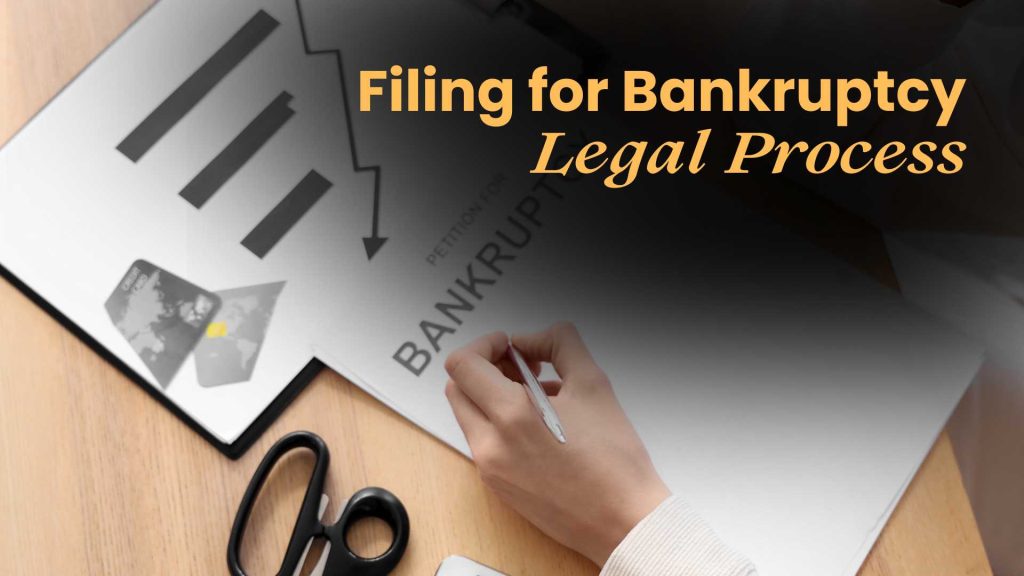
While bankruptcy might be a financial salvation for people drowning in debt, it also seriously lowers your credit score. Knowing the legal processes to restore your credit and how bankruptcy affects it will help you to accelerate recovery of financial stability.
How File for Bankruptcy Affects Your Credit
1. Credit Score Decline
Depending on your past credit history, filing for bankruptcy can drastically lower your credit score—often by 100-200 points or more.
2. Public Credit Report Record
Bankruptcy shows on your credit report for
- Chapter 7 bankruptcy: Ten years or more.
- Chapter 13 bankruptcy: carries a seven-year limit.
3. Problems Getting New Credit
After bankruptcy, lenders could consider you as a high-risk borrower, which would make it more difficult to apply for credit cards, mortgages, or loans straight away.
4. Greater Rates of Interest
Until you repair your credit, expect higher interest rates and tougher lending terms even if you qualify for loans.
How to Legally Rebuild Your Credit After Bankruptcy
1. Examine your credit report.
- Get a free copy of your credit report from TransUnion, Equifax, and Experian.
- Look for mistakes and contest any that might lower your score.
2. Send payments on schedule.
- On time payment of bills (rent, utilities, auto loans) improves your credit.
- Program automatic payments to prevent missed due dates.
3.Get a Secured Credit Card.
- A secured credit card lets show good credit use and calls for a deposit.
- Use it sensibly; keep your balance low and pay in full every month.
4. Imagine a credit-building loan.
- Small loans available from some banks and credit unions help to raise credit ratings when paid back on schedule.
- While increasing creditworthiness, these loans function as a savings plan.
5. Manage Credit Consumption Low
- Try to run less than thirty percent of your credit limit.
- Regularly paying off bills helps to stop further debt creation.
6. Authorized User: Become
- Ask a reputable family member with good credit to add you as an authorized user on their credit card.
- Their clean payment record will help raise your credit score.
7. Steer Clear of High Risk Financial Behaving
- Steer clear of predatory lenders, payday loans, or adding unneeded debt.
- Emphasize the need of saving and keeping a sensible spending pattern.
8. Consult a credit counselor.
- See a nonprofit credit counseling agency for direction in developing a financial recovery strategy.
- They can offer individualized plans for repairing credit and budgetary advice.
9. be consistent and patient.
- Rebuilding credit takes time; results immediately are not expected.
- Maintain discipline; track your development; and acknowledge little changes.
Closing Notes
Bankruptcy affects your credit but it does not define your financial future. Legal proactive rebuilding of your credit will help you to restore financial stability and aim toward a more safe future. By means of patience, discipline, and wise financial decisions, you will be on your path to regain creditworthiness and attain long-term success.


